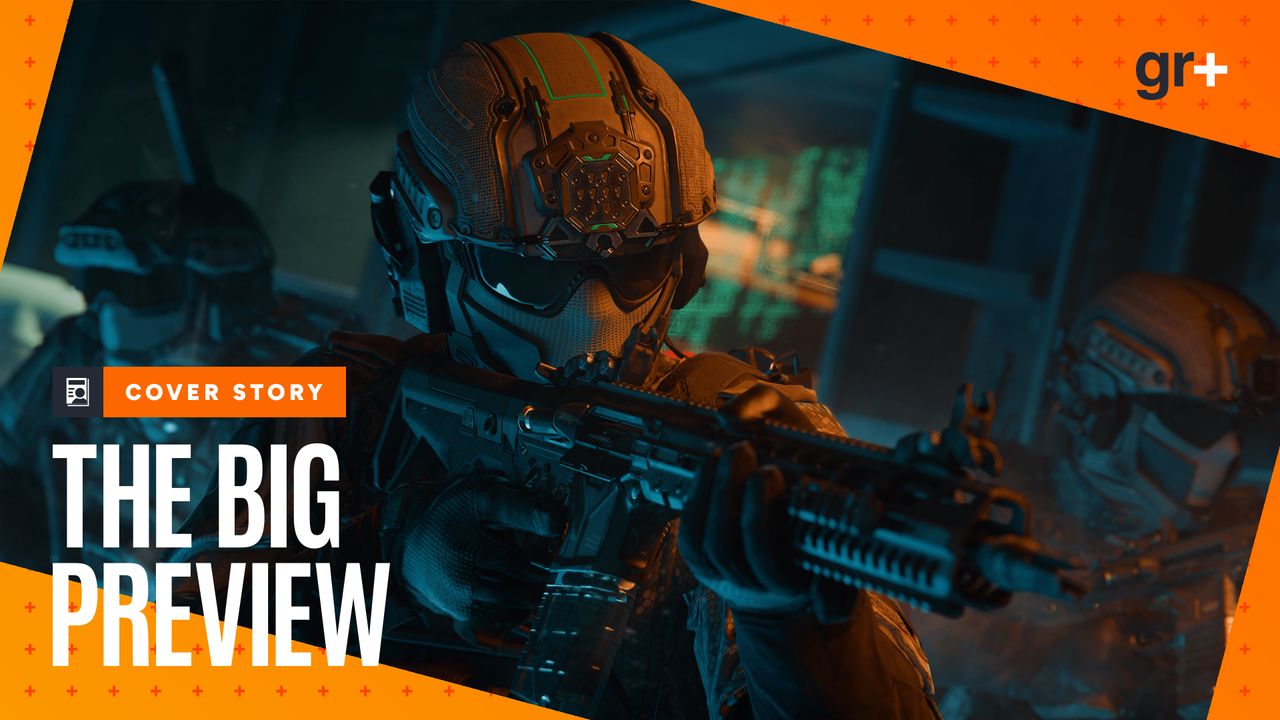
With Call of Duty: Black Ops 7, Treyarch wants to redefine what Call of Duty can be. "That's sort of our thing," laughs Miles Leslie, associate creative director. He's not wrong. It was Black Ops that first introduced the co-op campaign to Call of Duty, along with features such as Blackout, Pick 10, Scorestreaks, Theater Mode, and Zombies. The studio has a reputation for breaking boundaries in a way that captures the attention of millions of players.
Delivering back-to-back installments to the Black Ops universe for the first time in Call of Duty history surely makes sense for Activision Blizzard, then (and for Microsoft, looking to recoup the $69 billion it spent to acquire the publisher). Still, there is this lingering fear that a year simply isn't enough time to deliver a worthy continuation. We need only look to 2023's Modern Warfare 3 as the example, an under-torqued expansion that demonstrated just how quickly franchise fatigue can set in among the faithful.
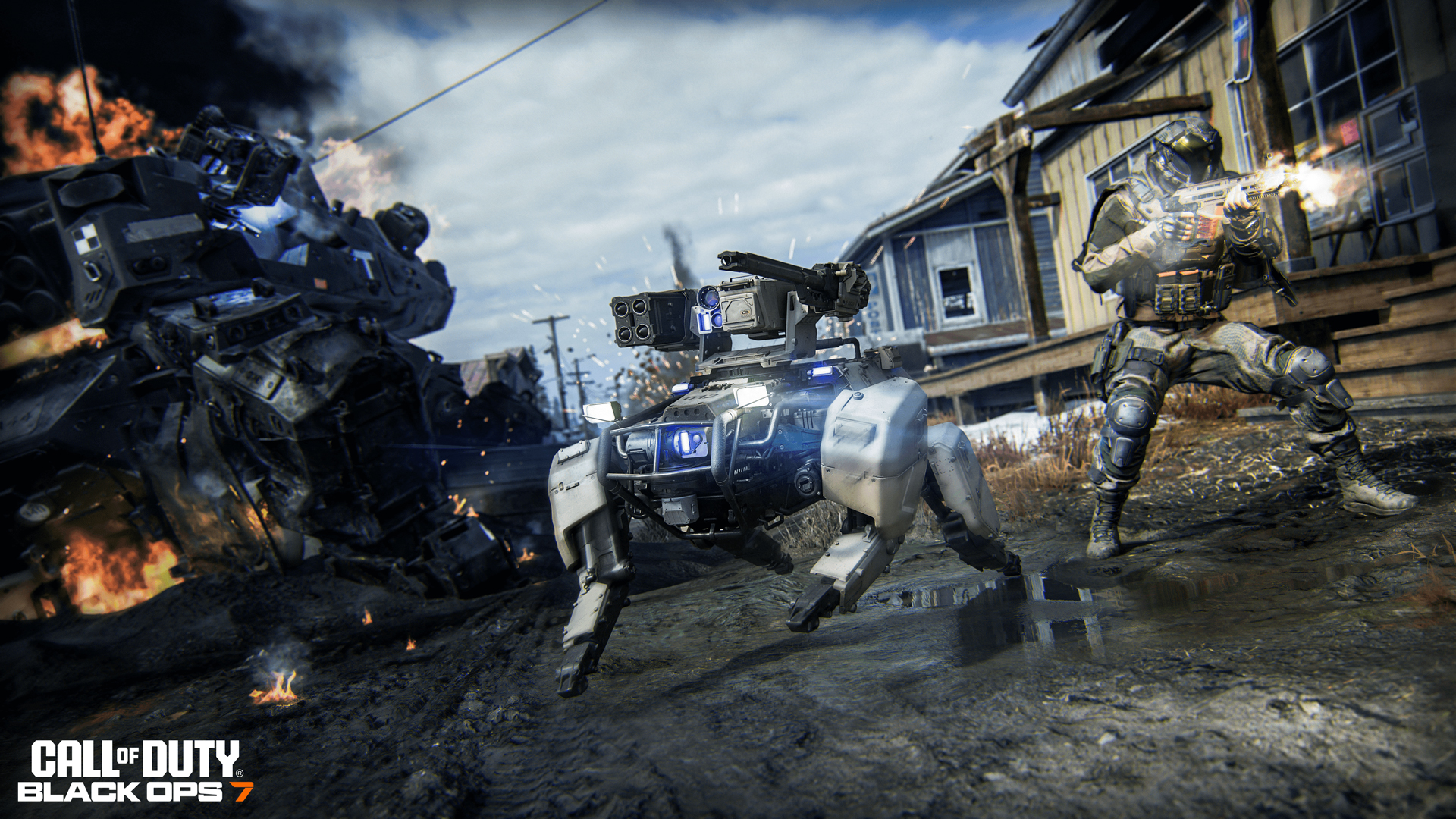
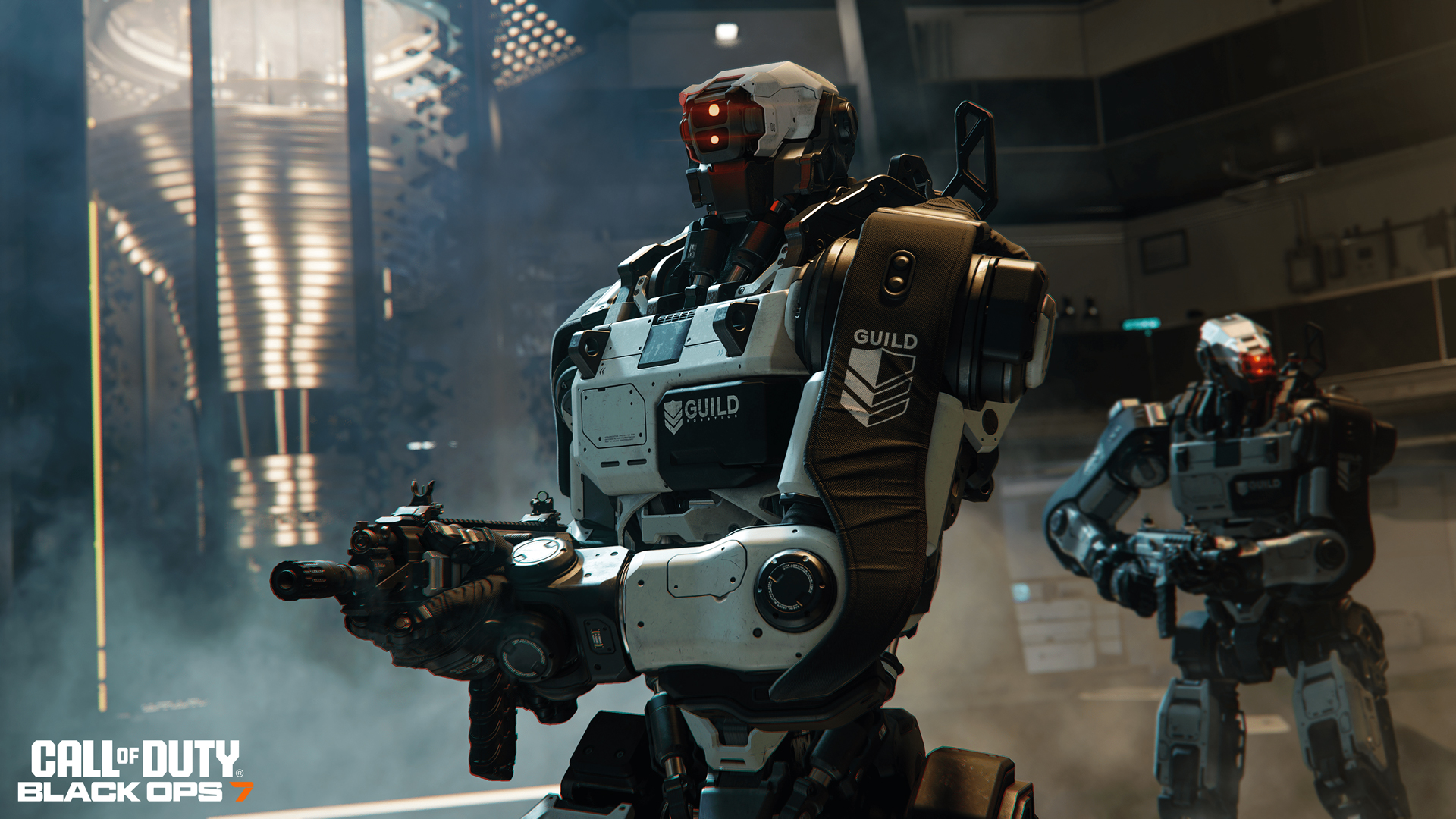
So how is this any different? "Black Ops 7 was concepted and developed in parallel with Black Ops 6," says Yale Miller, senior director of production. That detail may sound insignificant, but it signals a fairly monumental shift in the way that Call of Duty games are traditionally made. Where Infinity Ward, Sledgehammer Games, and Treyarch would once spend up to three years working on the next series installment, now there's a global group collaborating around two projects simultaneously, and with intentionality – all in an effort to harness faster iteration and expansion.
Leslie tells me that developing the two games in parallel ensured they could make direct efforts to fight fatigue, with Treyarch establishing that Black Ops 6 and Black Ops 7 were "separate games with distinct identities" from the outset. One is a spy action thriller set in the '90s, the other a madcap adventure with cutting-edge 2035 combat, the two linked together through narrative ties to Black Ops 2.
With the foundations for key mechanics and systems already in place from Black Ops 6, Treyarch is working to deliver key refinements to Omnimovement for its sequel, and changes to key multiplayer elements like create-a-class and prestige progression. "We've always tried to push the envelope," Miller continues, "but we challenged the team to look at the three big pieces of a Black Ops game – Campaign, Multiplayer, and Zombies – and think about how we can take each and give our players something they have never seen before, and ways to play with their friends that they've never had before."
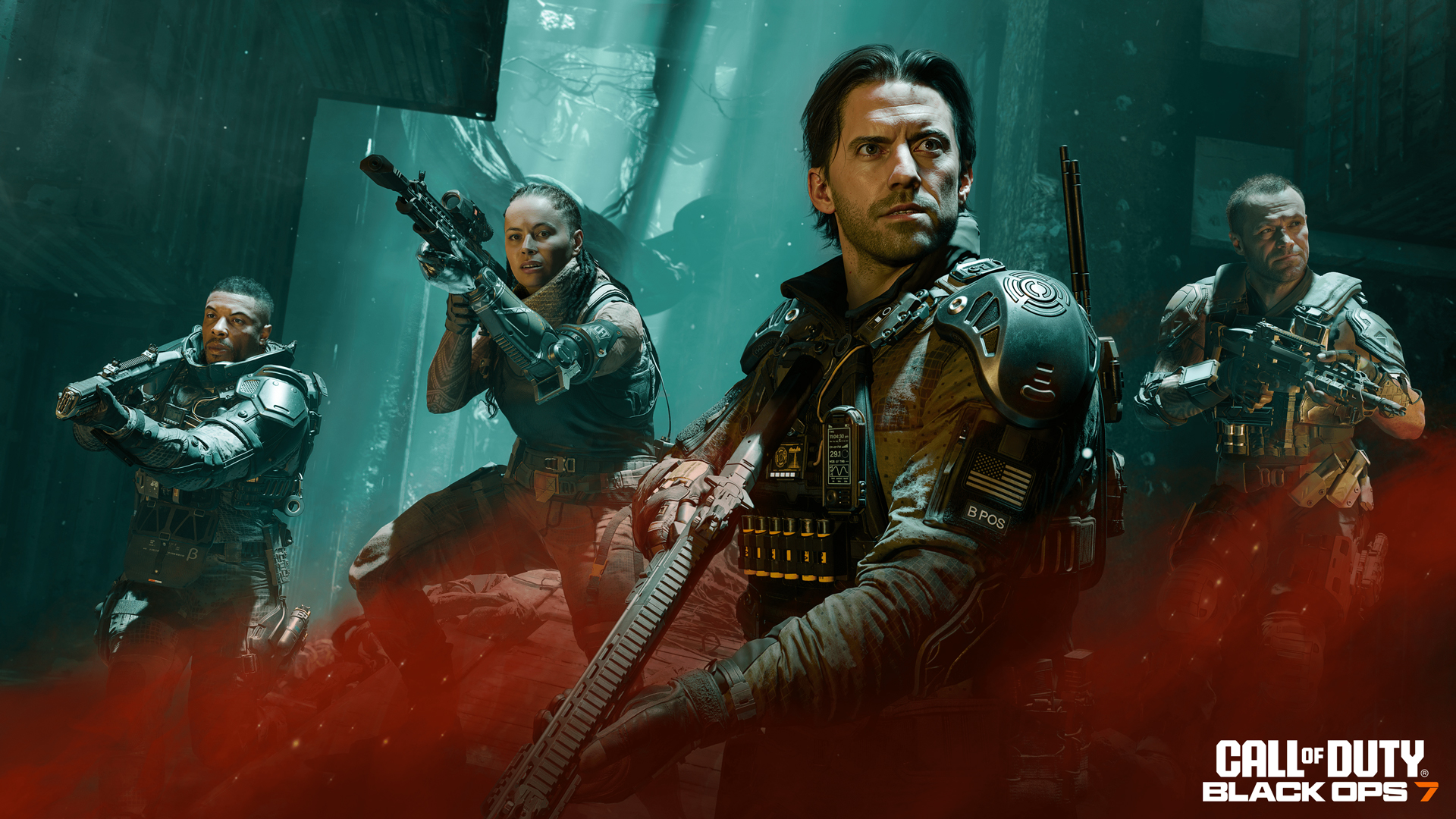
Embracing Chaos
After 20 mainline Call of Duty games in as many years, the idea that the franchise can still conjure new ways to play is easier said than done. Treyarch is daring us to believe. And according to design director Kevin Drew, these big strides began with the intent to "redefine what campaign can be in Call of Duty."
Black Ops 7 is set in 2035, some 40 years after Black Ops 6 and a decade after the events of Black Ops 2. Terrorist Raul Menendez is purportedly back from the dead, forcing David Mason and his Specter One unit into action before the world is burned to the ground. Raven Software is once again operating in a co-development capacity to oversee the campaign, with the studio's creative director promising that Black Ops 7 will "deliver some of the most unique and unexpected moments of the series."
"We wanted to bring replayability to campaign in the way that we did with Zombies"
Associate art director Jon Zuk continues: "As the story unfolds, and with a blurring of the line between reality, memories, and fear-induced hallucinations, things get progressively stranger. We've opened the door to all sorts of possibilities, such as transporting players to completely different locations, sometimes 1000s of miles apart in an instant."
It's a true visual spectacle, and looks wildly ridiculous in a way that only Black Ops can manage. But is it a way to play like never before? That's where 'connected campaign' comes into the fold. "Typically, campaign has been a standalone experience," says Lawrence Metten, associate director of design. "That changes in Black Ops 7 with our co-op campaign."
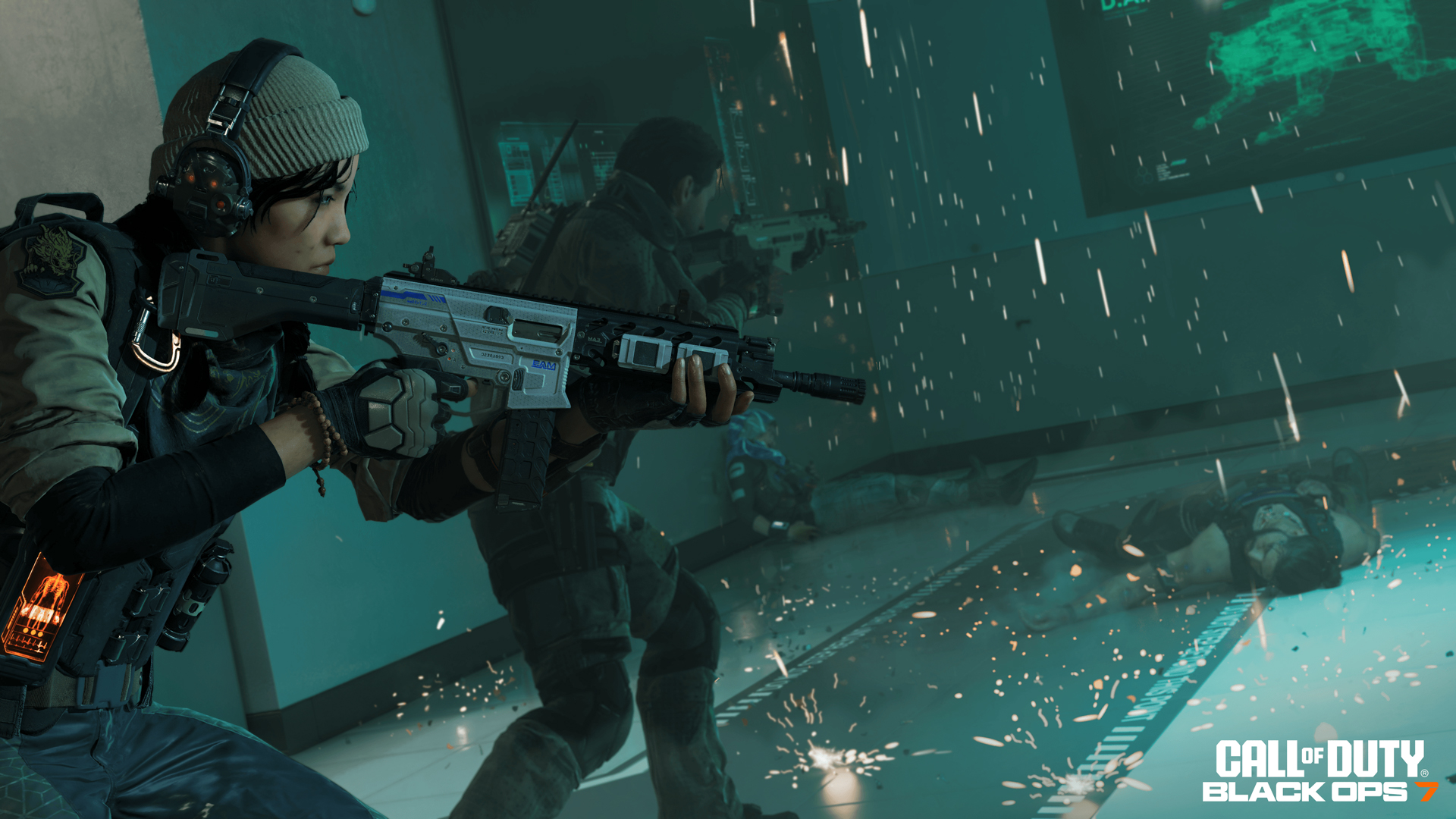
"We set out to build a more social game," says Leslie. "This is the first time that you can literally party up and go anywhere together. We wanted to make sure that your time is rewarded." The associate creative director is quick to stress that "you can still experience the campaign solo", but that efforts to build a more connected ecosystem are here to "encourage" story players to sync up with their friends. All of that, of course, leads to refining and refocusing efforts that were established in Black Ops 6's multiplayer.
Refining Multiplayer
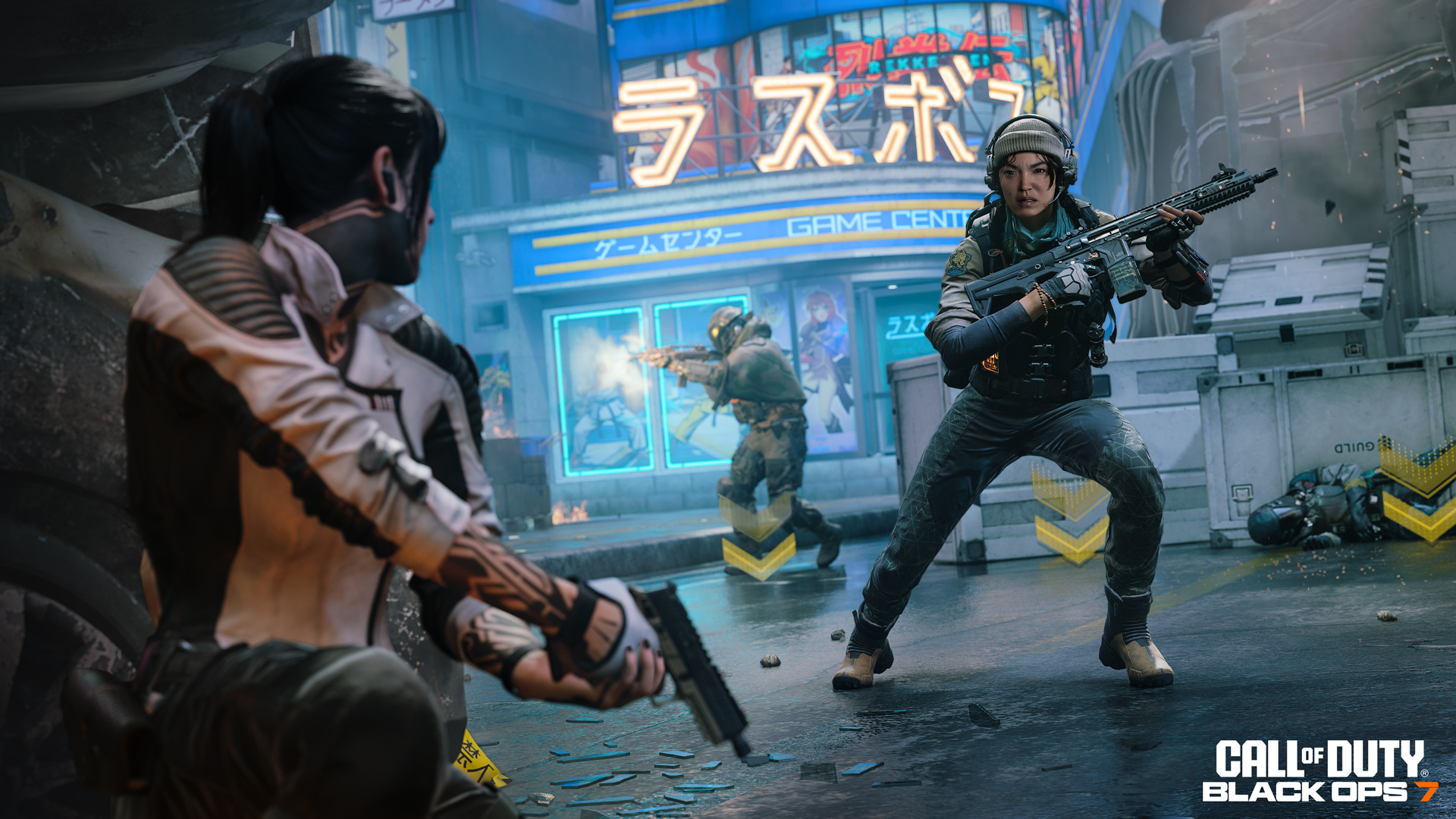
Take Global Weapon Builds, the BO6 system that lets you create custom blueprints for simultaneous use in Multiplayer, Zombies, and Warzone. "This is something we wanted to do for a really long time," says Metten. "We hadn't been able to until our Weapon Build system shipped in Black Ops 6, so this is a natural evolution of that system."
The same is true of Omnimovement, the 360-degree movement system introduced in Black Ops 6 that lets you sprint, slide, and dive in any direction while firing. Treyarch is hesitant to say that Omnimovement is slower in Black Ops 7, but it has been refocused. "This is the benefit of doing both games in parallel," says Leslie, pointing to the action-heroics BO6 embodied versus the near-future framing of BO7. Tighter movement also paves the way for new abilities such as wall jump, combat roll, and the return of moving while mounted.
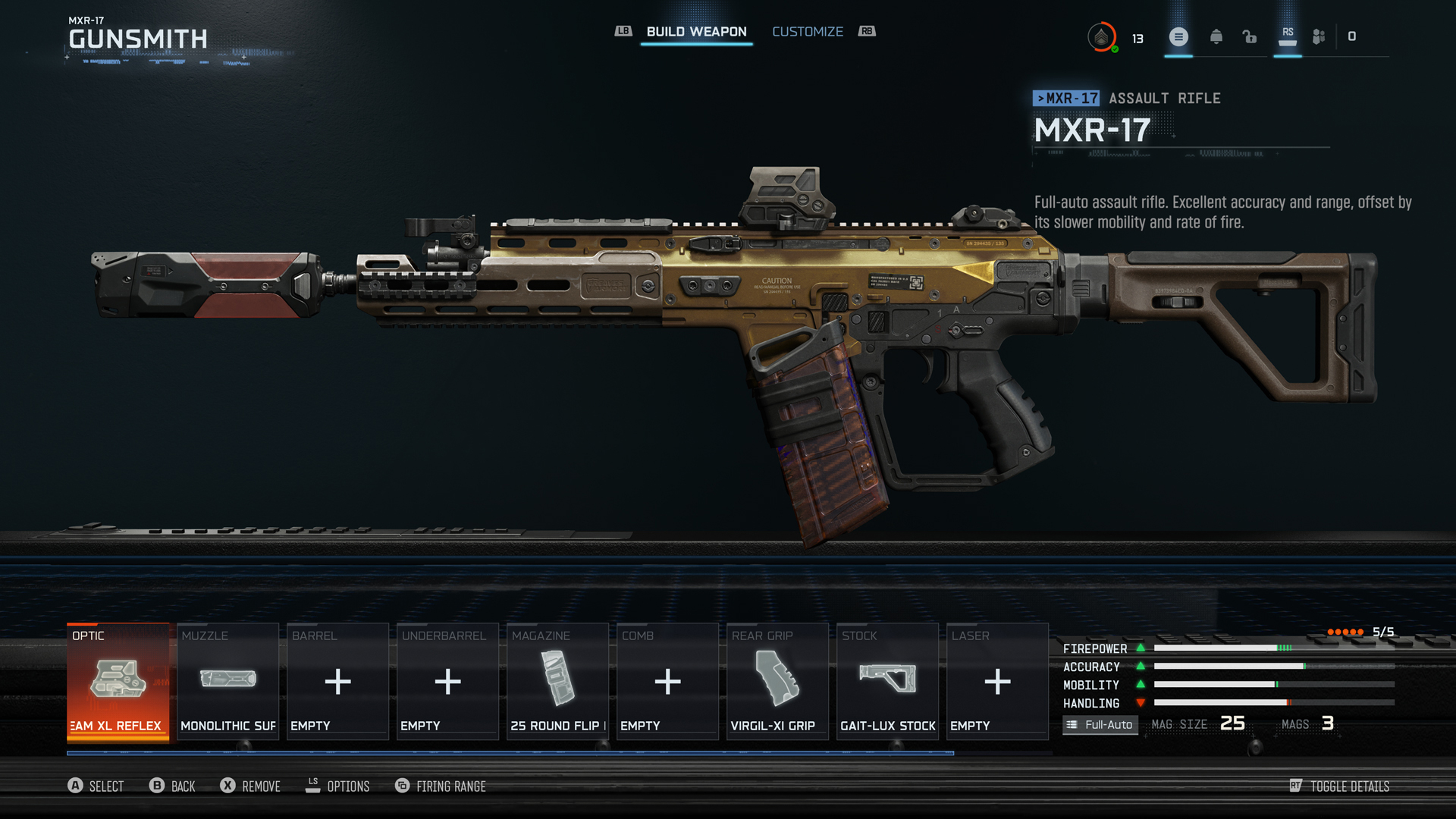
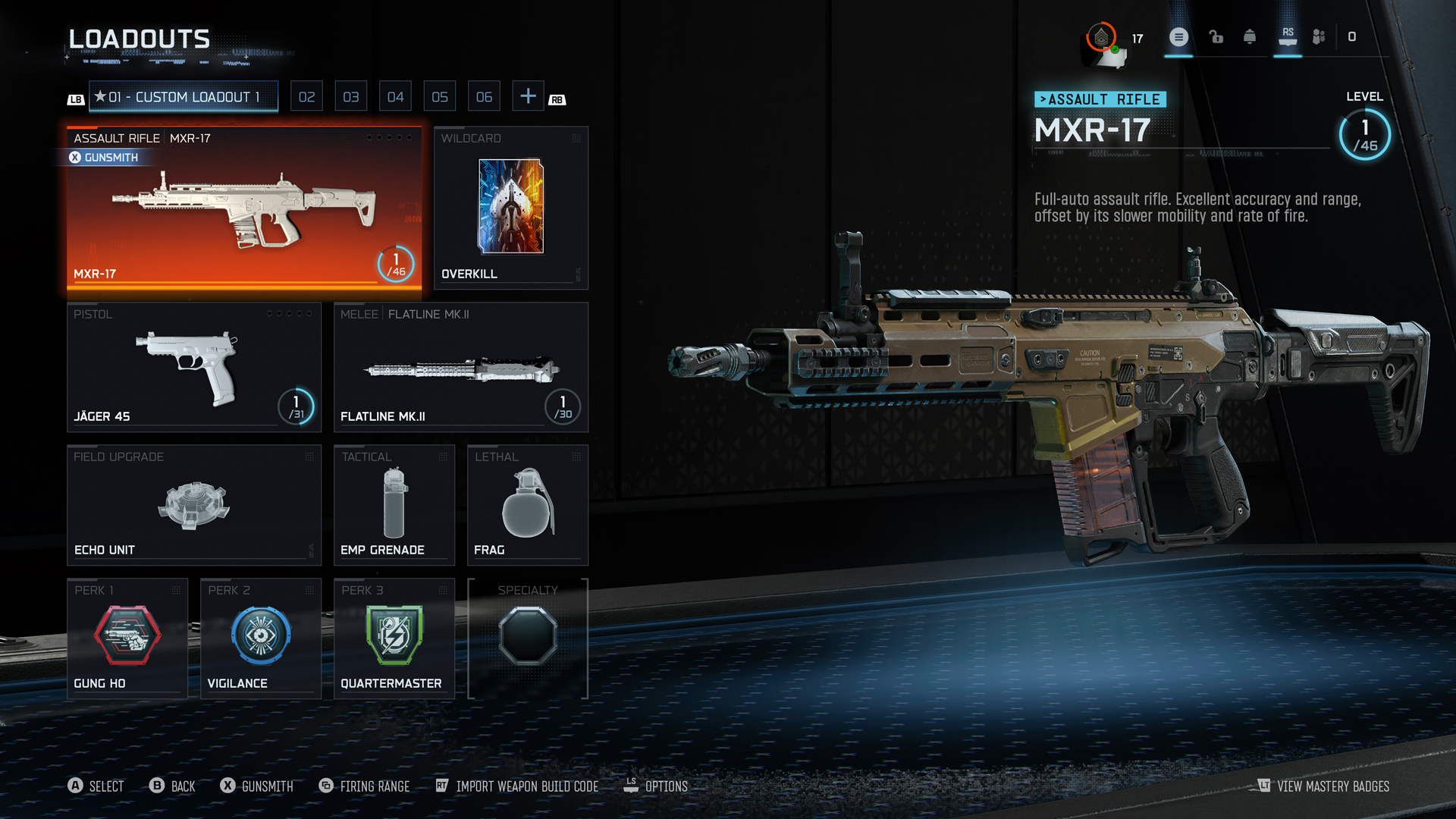
Matt Scronce, design director at Treyarch, says that the "awesome thing for us, of very intentionally building Black Ops 6 and Black Ops 7 to be these successors, is we've been able to look at what we introduced, hear the player feedback, and then directly infuse that into Black Ops 7." The ability to "almost do a post-mortem in real-time" has led to some key changes. Tac-Sprint is off by default, as is the ability to aim down sights whilst sliding or diving. "That's a pretty big difference between the two games," says Scronce, "but this is us being a bit more intentional with our combat at a baseline."
"Whatever systems we add or tweak, we want to introduce depth without flexibility"
"Something I always remind the team is that we are Call of Duty and we are here for a reason," says Scronce. "And one of those reasons is that it's very easy to pick up and play and do what you want to do. So whatever systems we add or tweak, we want to introduce depth without flexibility." It's this ethos which has powered some of the biggest incoming revisions to create-a-class. Aspects like Tac-Sprint and Sprint-Firing, for example, may be off as default to help reset the baseline of combat, but they can be switched on with the relevant Perk equipped – at the cost of something else in your loadout.
The same is true of other incoming revisions. There are new perks which offer squad utility; three new hybrid combat specialties, allowing for greater flexibility in class composition, and an Overclock system which lets you supercharge Equipment, Field Upgrades, and Scorestreaks. Treyarch is also building upon classic Prestige, which returned in Black Ops 6, by bringing back Weapon Prestige – giving you the option of unlocking exclusive "meta-shifting" attachments over time.
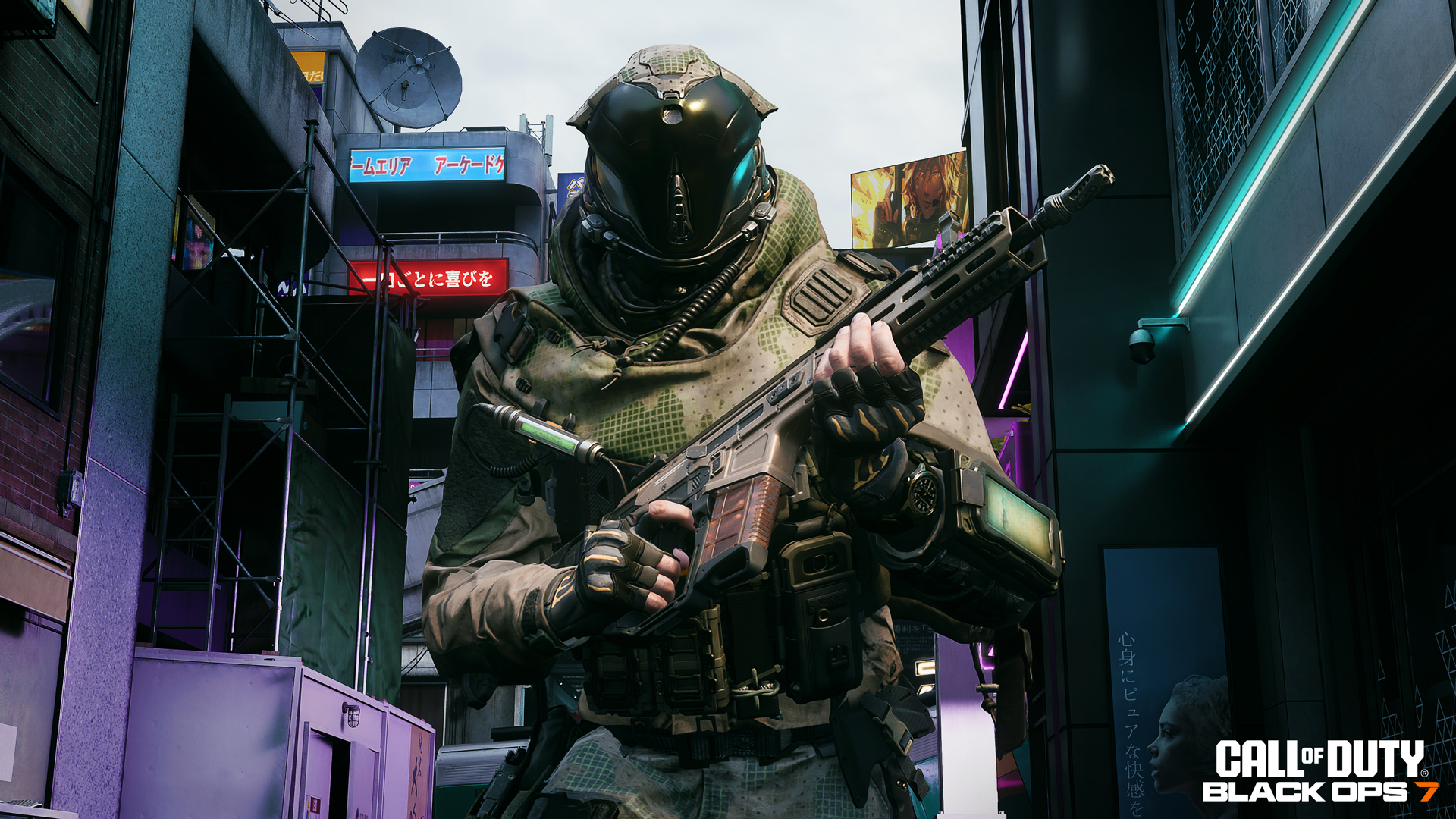
Back In Black
It's always going to be aspects like maps (16 Core 6v6 maps and two two Skirmish combat zones available at launch) and the weapons (including 16 that are entirely new to the Call of Duty franchise, designed to reflect the 2035 setting) that steal focus when considering Call of Duty multiplayer, but there's clearly an exceptional amount of depth layered into create-a-class and loadouts this year.
"Where we're taking this game is so drastically different from a lot of the things we've done before"
When Activision announced that Black Ops was returning for another year, the question was always going to be whether Treyarch had had appropriate time to make Black Ops 7 feel like an event rather than an expansion. But with a sprawling campaign that's seamlessly integrating into (and contributing towards) wider progression systems, an ambitious Endgame that's providing a new type of co-op experience, a Zombies offering with the largest playspace to date, and a multiplayer that's carefully building on the foundations of what came before, Black Ops 7 is shaping up to be unmissable.
"The tagline 'unleashing the future of Black Ops' has been the mantra from the team," says Leslie. "We've been working in parallel with the Black Ops 6 team and building on the momentum of its success, all while thinking about how we can make Black Ops 7 feel different. Where we're taking this game is so drastically different from a lot of the things we've done before that Black Ops 7 feels like a real step-change to us."
Call of Duty: Black Ops 7 is out November 14, 2025. The FPS is set to launch on PC, PS5, PS4, Xbox Series X, and Xbox One – it'll also be available day one through Game Pass Ultimate. Click here for more details on how to access the Black Ops 7 beta, as well as the latest Black Ops 7 beta times and dates.







